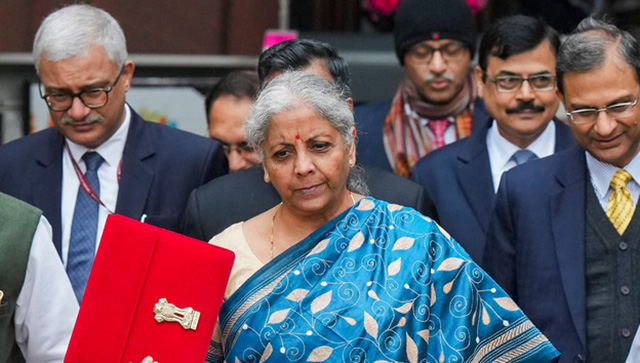Union Finance Minister Nirmala Sitharaman presented her sixth consecutive budget earlier this week. History will be kind to her for a variety of reasons. The most important of them have to do with her decision-making, including the bold corporate tax cut to revive economic activity after the 2018–19 growth slowdown. Other reasons include the fact that she had to operate in an extremely challenging environment, starting with the pandemic, followed by geopolitical conflicts, and a fragmented economic environment. Perhaps very few governments in the world have successfully revived economic activity in three consecutive years. This itself should suggest the extent of external shocks that rocked the Indian and global economies through much of the last five years. There is also the issue of managing the economy in an environment of data challenges emanating from the delay in the Census due to the pandemic, data quality issues with existing surveys, and other delays in statistical exercises. Notwithstanding these challenges, India’s economic recovery has been relatively strong and largely broad-based. The aforementioned discussion is important to give context to the interim budget that came in the backdrop of a persistently high fiscal deficit (and one that did not yet lead to persistently accelerating inflation or substantial worsening of the current account deficit). These are important issues, particularly as people compare and contrast different periods of economic recovery. Many have already written about what the budget brings for the middle class, for taxpayers, etc. But the budget is more than just an instrument of redistribution within existing subjects. It is as much about redistribution among different generations, including future generations. Not many budgets pay attention to the latter, particularly in election years. However, the present budget embarks on a bold fiscal consolidation path—much bolder than was originally anticipated. This in an election year makes it distinct and perhaps one of the most important aspects of the budget. “We continue on the path of fiscal consolidation, as announced in my Budget Speech for 2021–22, to reduce the fiscal deficit below 4.5 per cent by 2025–26. The fiscal deficit in 2024–25 is estimated to be 5.1 per cent of GDP, adhering to that path,” said the finance minister. The objective of economic policymakers is to ensure a stable and high economic growth rate (low unemployment rate) along with ensuring a low and stable price regime. The operative aspect here is to ensure that the growth process is stable. Not much attention is paid to this as there is a popular myth that growth is guaranteed, even as countless countries have illustrated how their per-capita income has reduced due to unstable growth processes. India’s own experience with high fiscal deficits has been problematic, with the high deficits of the 1980s culminating in a balance of payments crisis in 1991 and, more recently, high deficits since 2008–09 leading to double-digit inflation combined with a weakening currency, resulting in the economy being termed one of the Fragile Five. It is in that context that we must welcome the bold decision to unwind a lot of the temporary fiscal stimulus introduced during the pandemic. It is therefore encouraging that the finance minister has decided to undertake a bolder fiscal consolidation path, reducing the deficit to 5.1 per cent in the coming fiscal year. Doing so mitigates the risks associated with persistently high fiscal deficits and ensures a gradual return to the pre-pandemic path, which is what the finance minister had indicated through much of her previous budgets. This should not come as a surprise given that in the past 10 years, the current dispensation has tried to transition India into a low and stable inflation economy with a decent growth rate. Moreover, fiscal consolidation is important given the challenging economic environment as world trade and global growth rates adjust to a new normal. Geopolitical risks and further fragmentation of economic activity are potentially likely to result in frictions that may require proactive policy support going forward. In that context, India’s present economic growth provides an opportunity to unwind the stimulus and, at the same time, revisit existing expenditure commitments to some prior programmes that have outlived their purpose. If anything, the tax revenues paint a healthy fiscal picture, and India’s economic growth is likely to add substantial individuals under the tax net over the coming years. Both of these should leave fiscal policymakers with enough ammunition to respond in the event of future external shocks. The budget can be summarised as one of the rare few in India’s economic history that prioritises responsibility and departs from the mistakes made after the 2008–09 crisis. The author is a New-York based economist. He tweets at @karanbhasin95. Views expressed in the above piece are personal and solely that of the author. They do not necessarily reflect Firstpost_’s views._
Read all the Latest News , Trending News , Cricket News , Bollywood News , India News and Entertainment News here. Follow us on Facebook, Twitter and Instagram.


)

)
)
)
)
)
)
)
)



